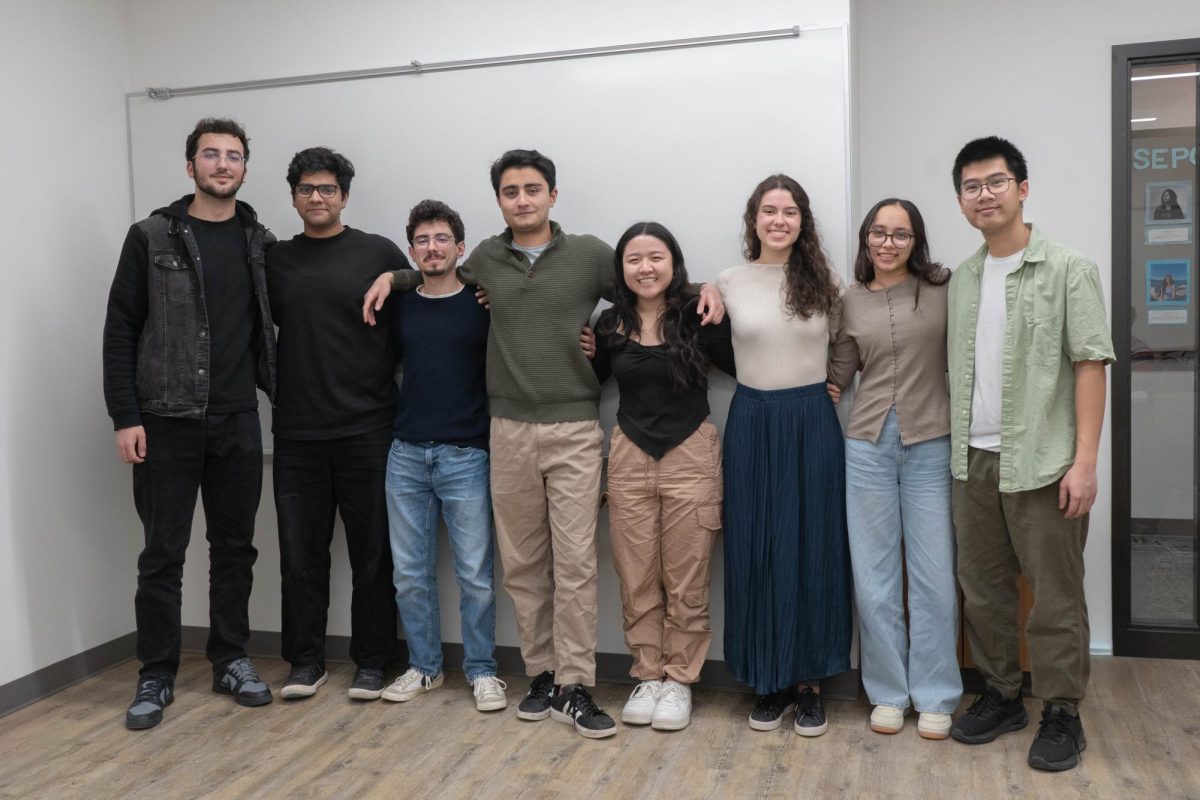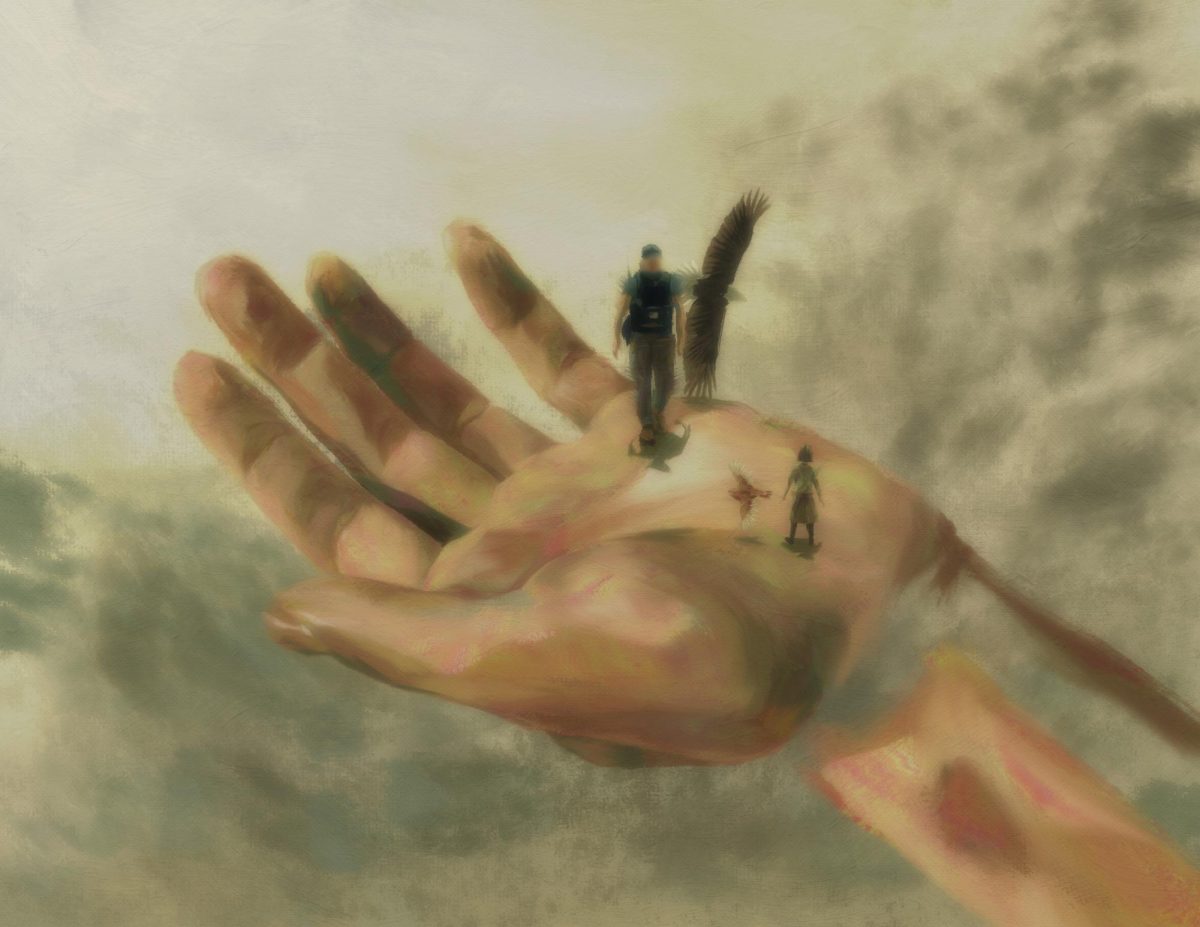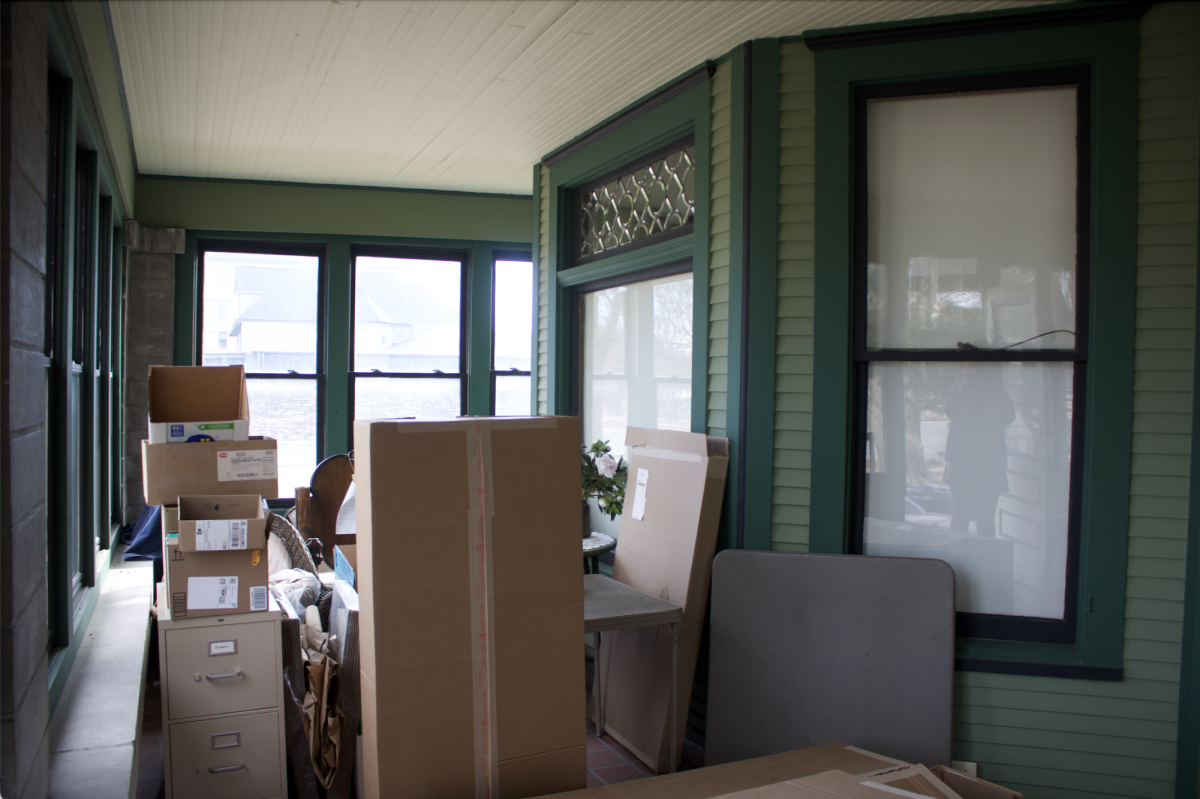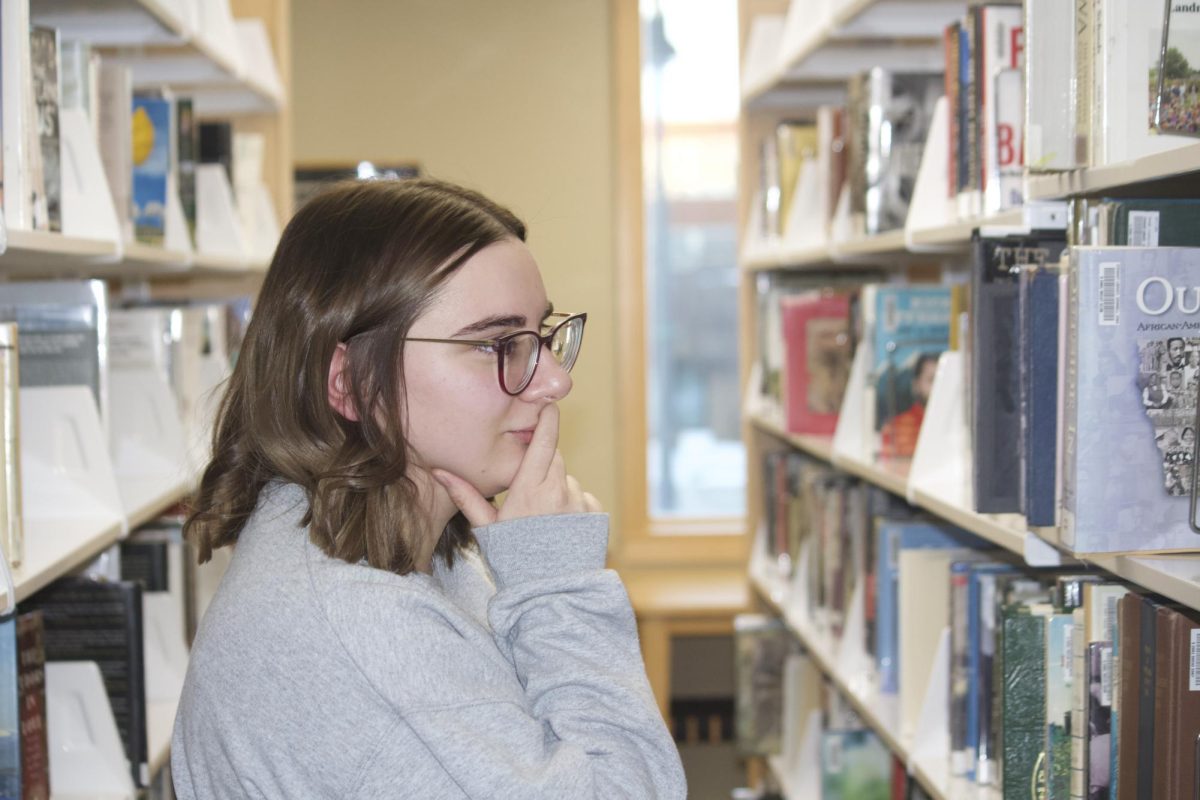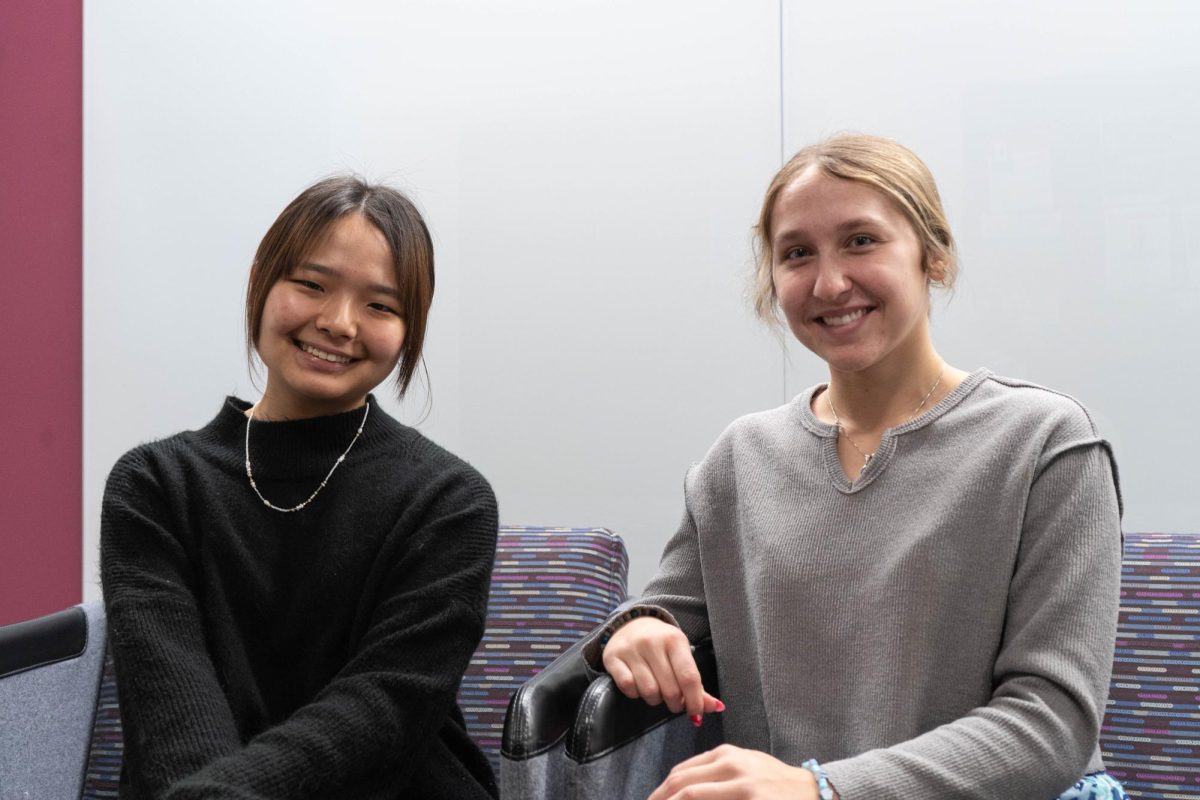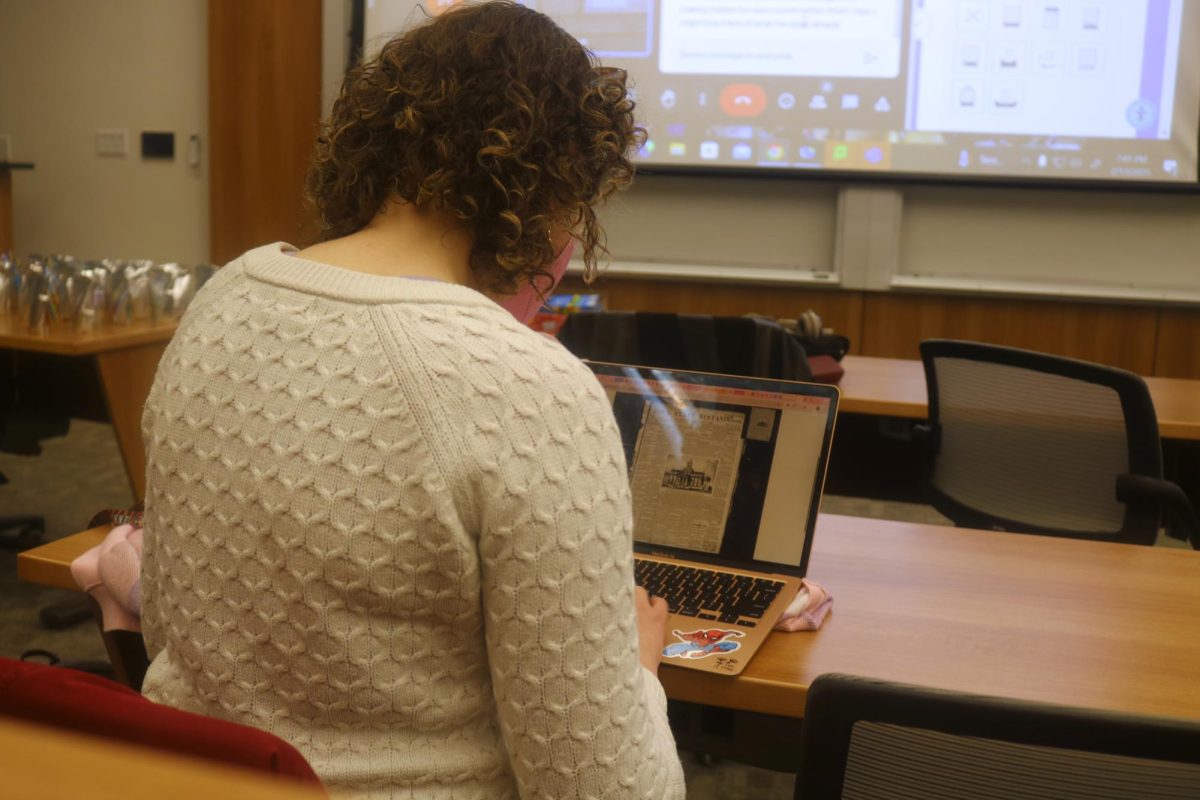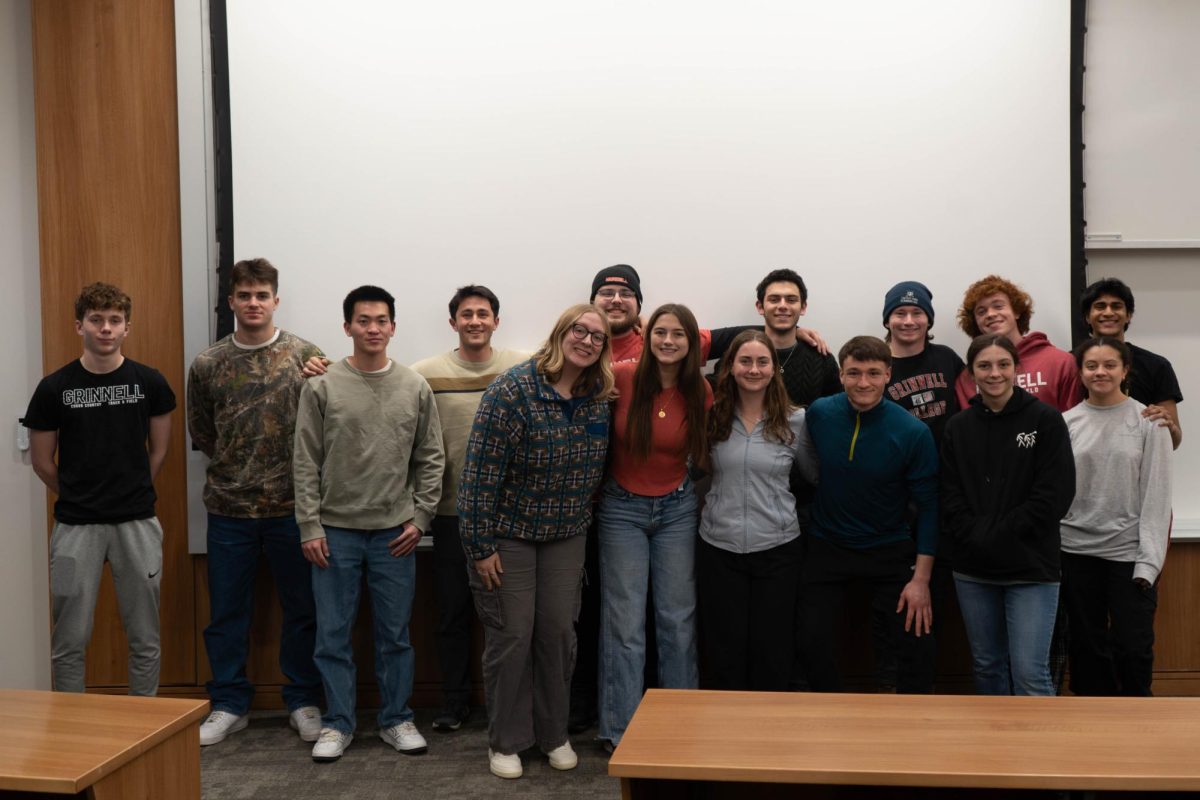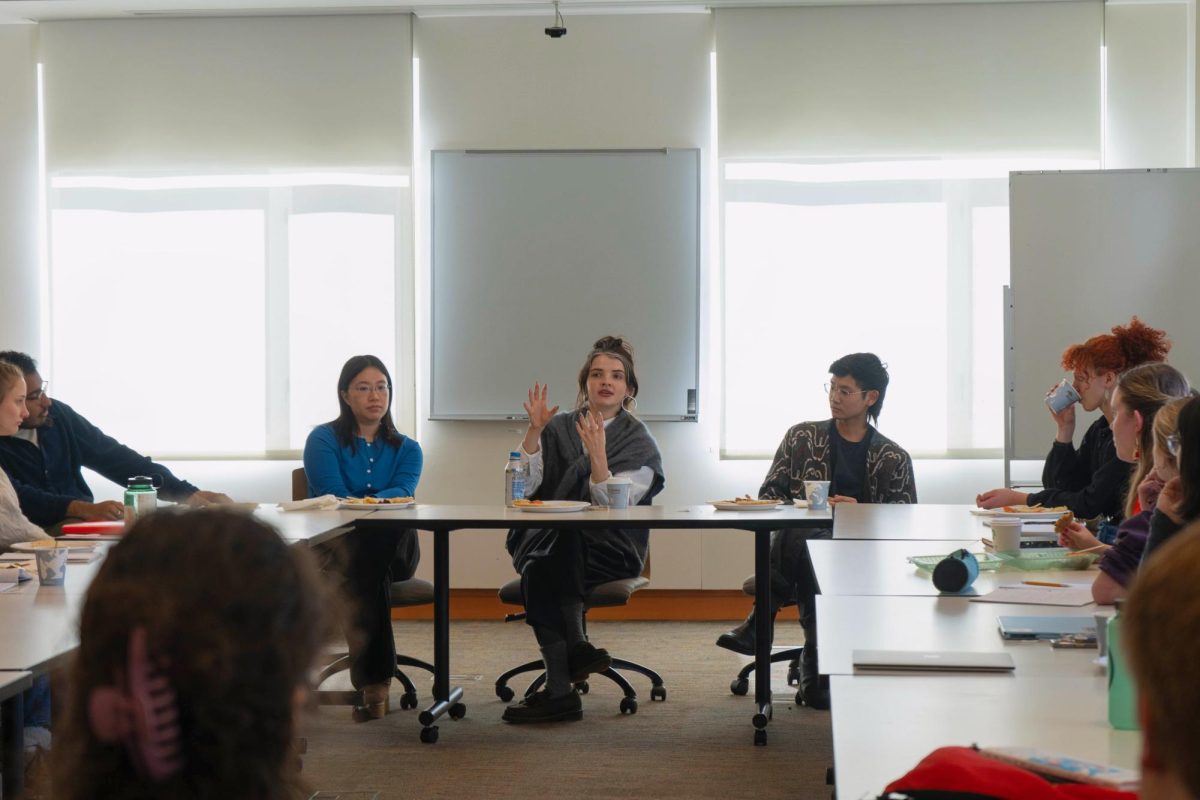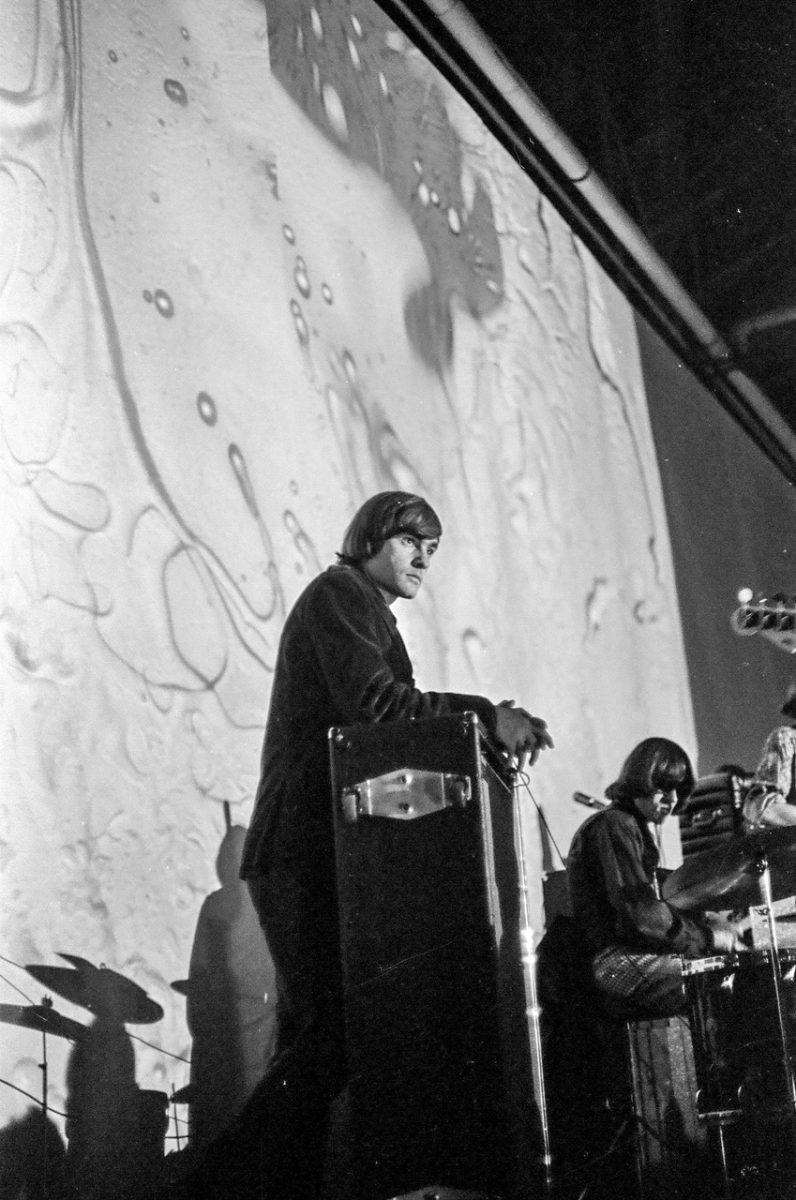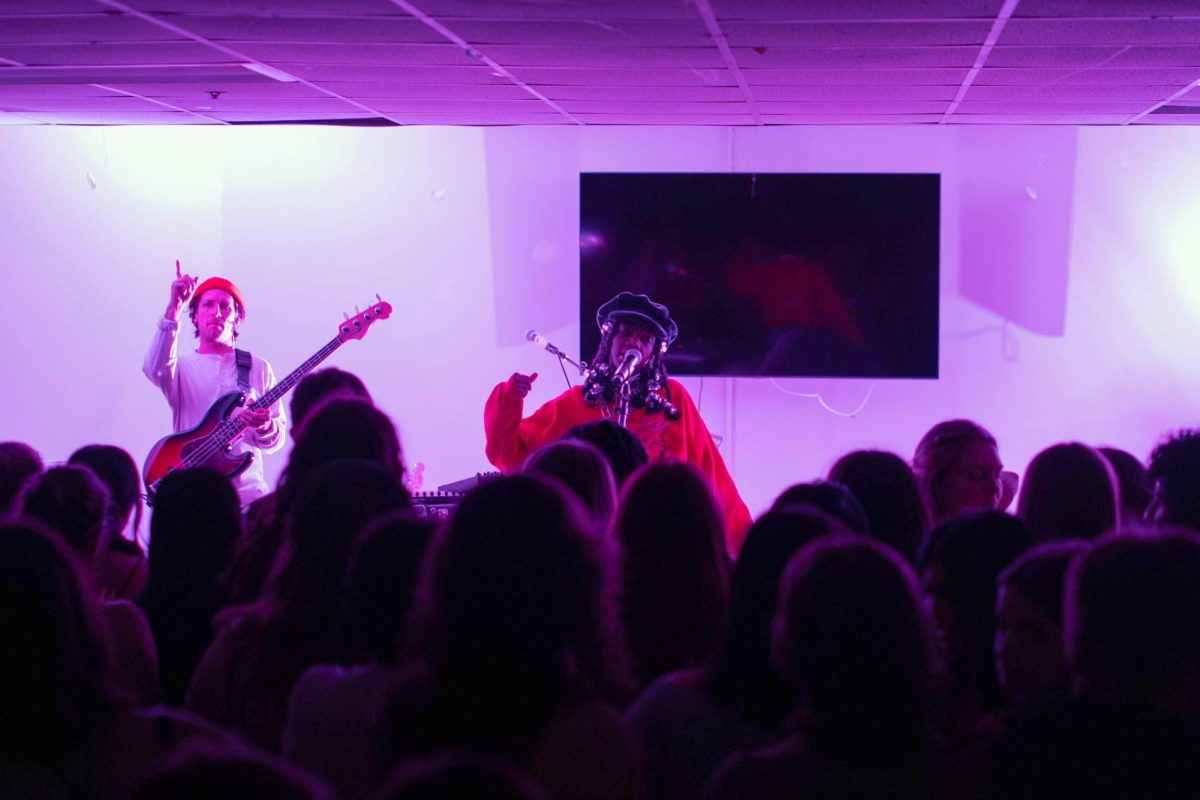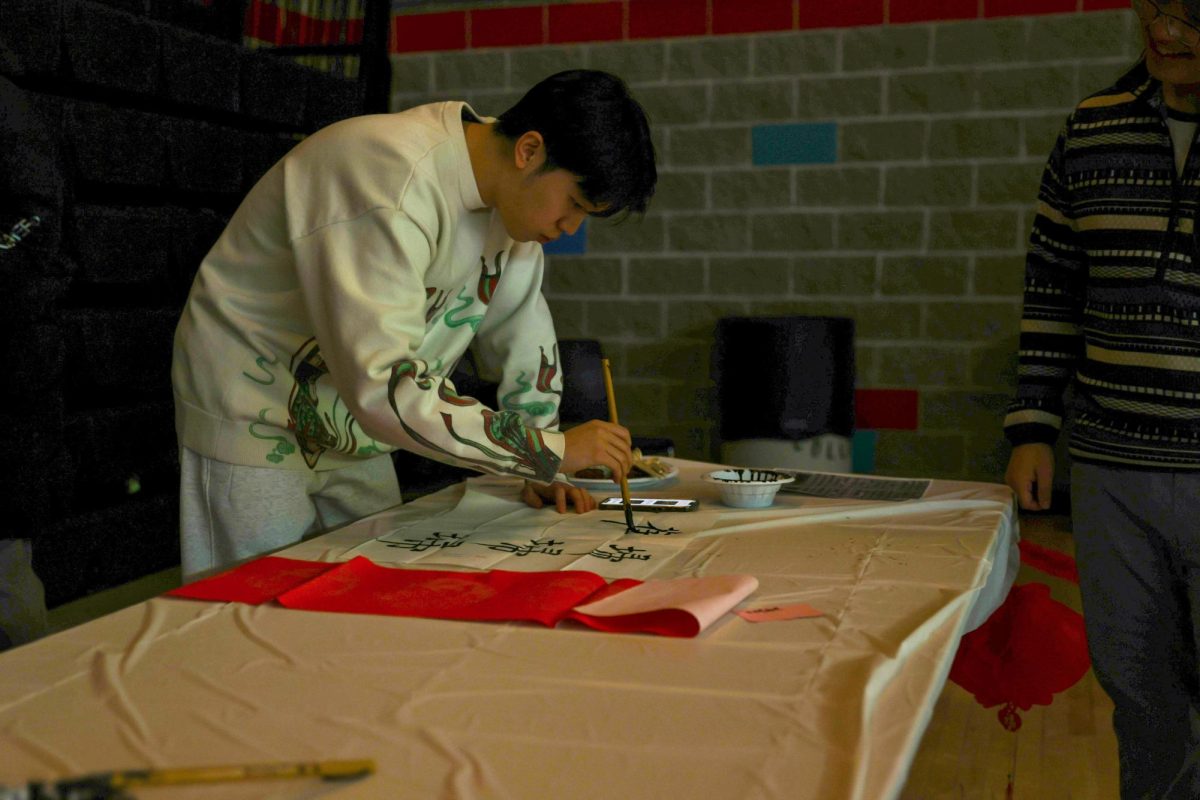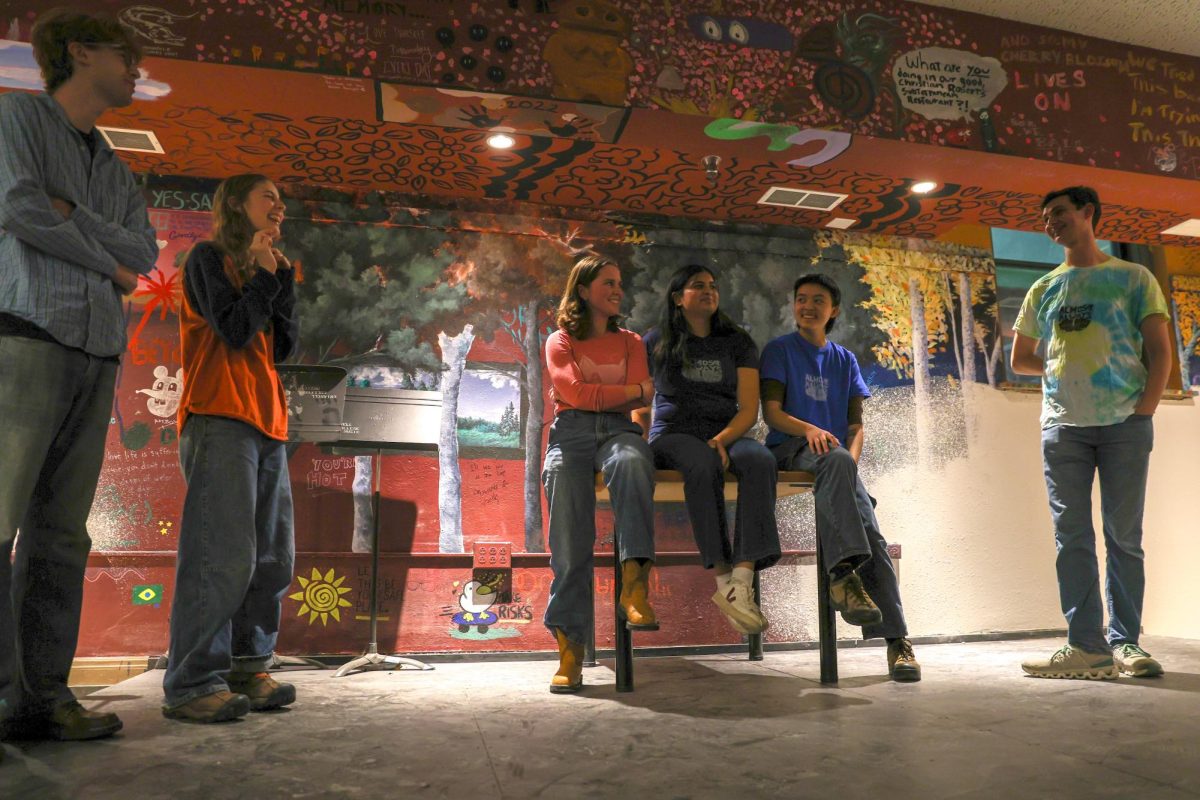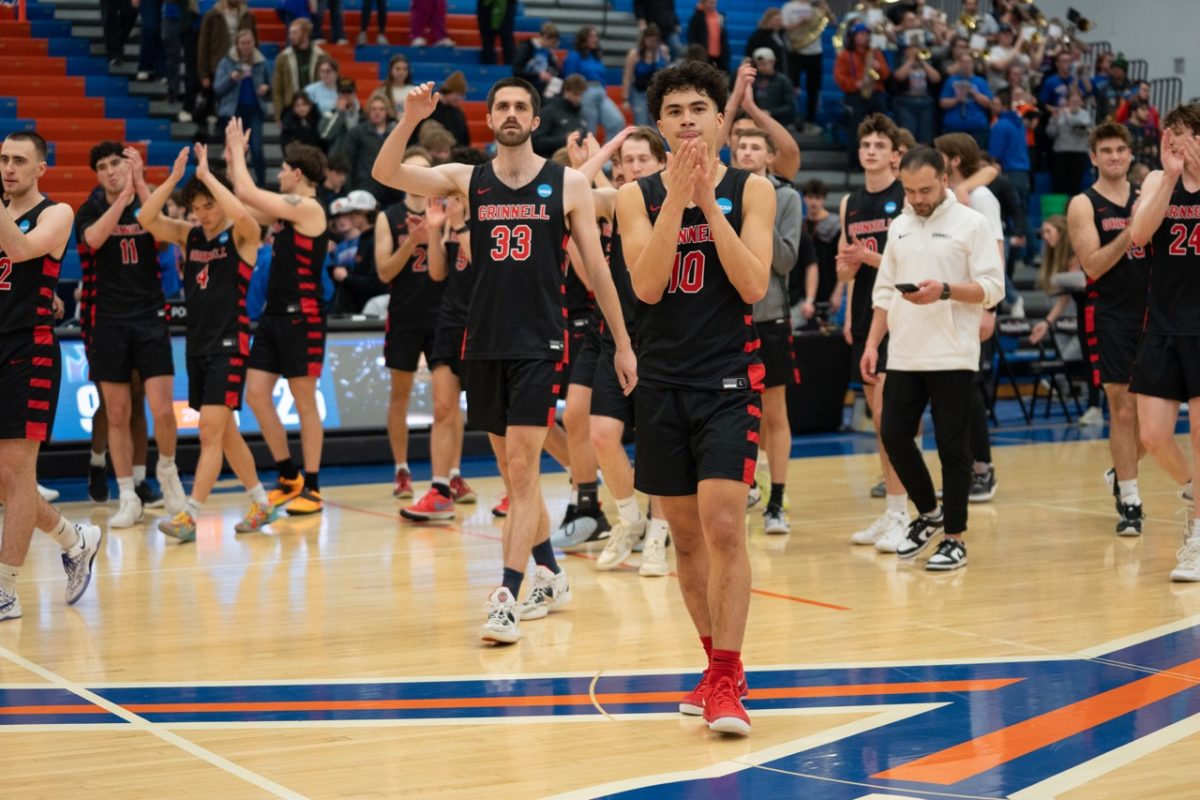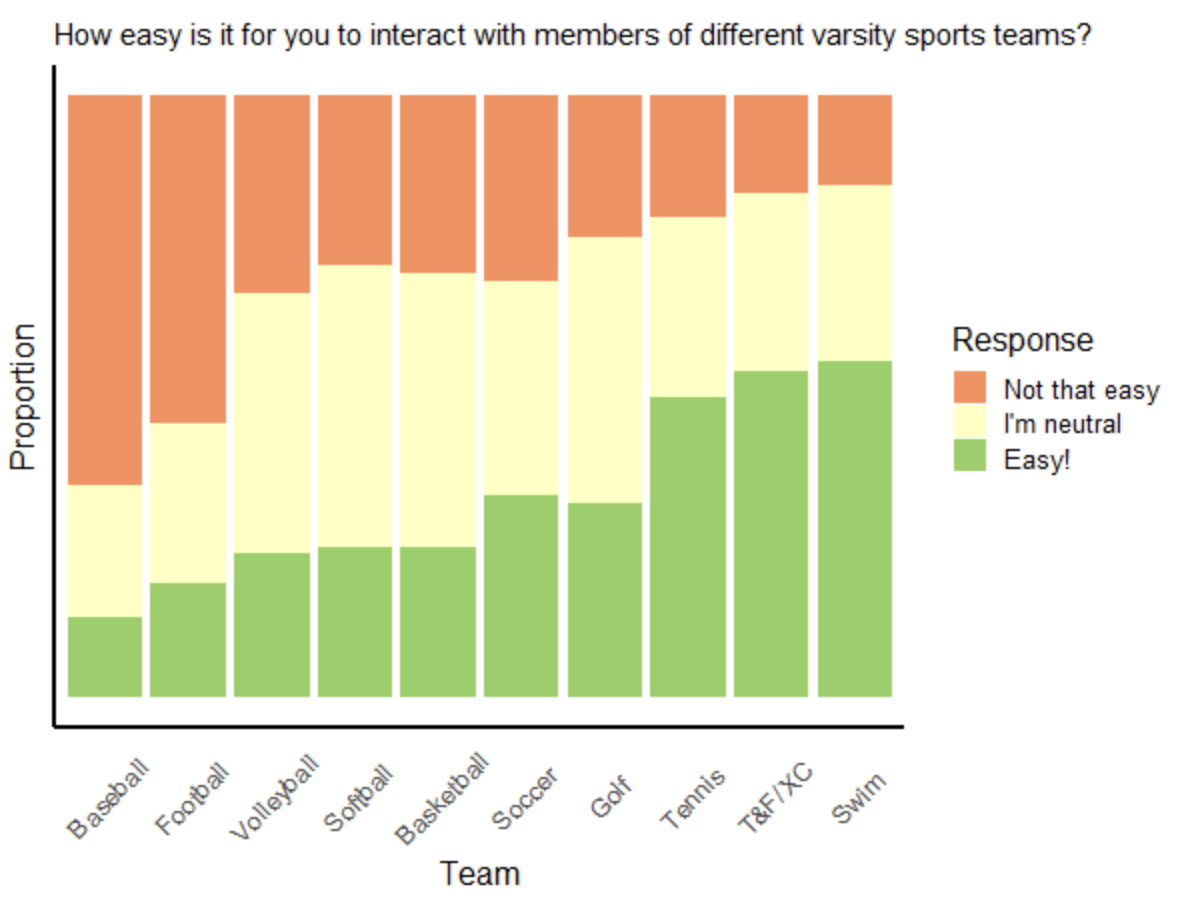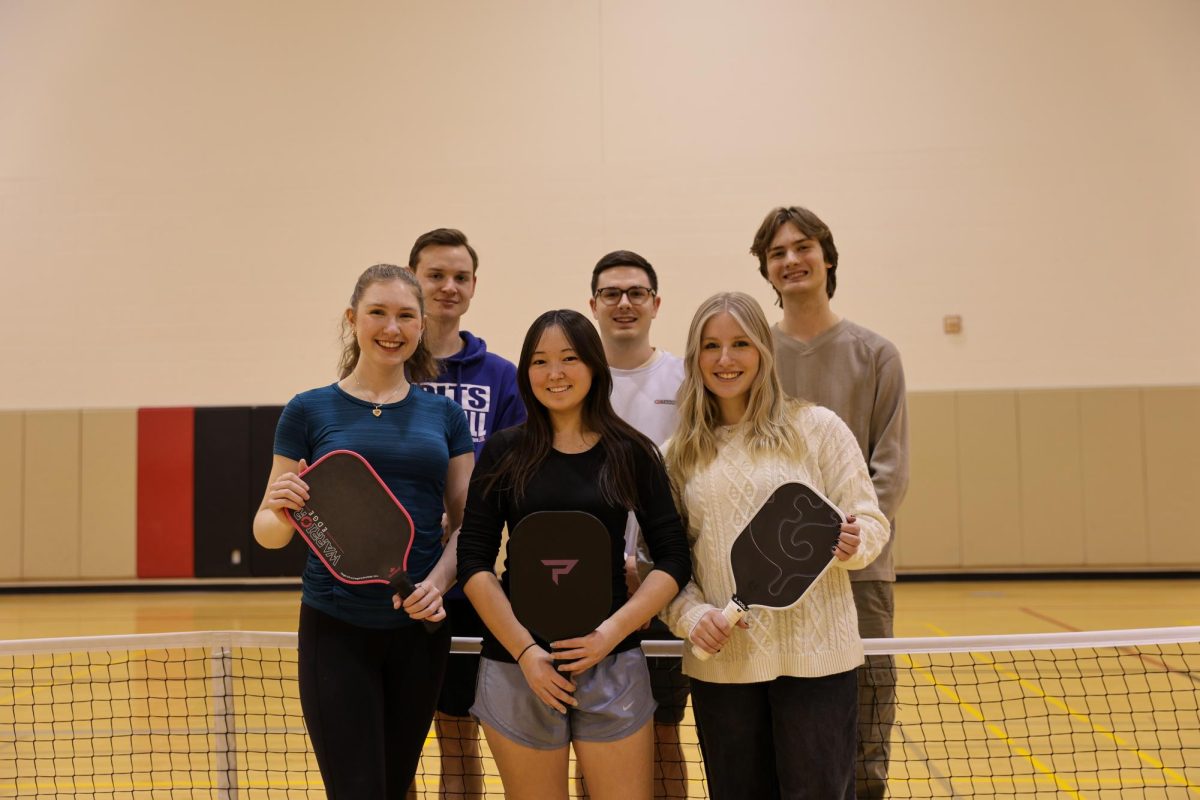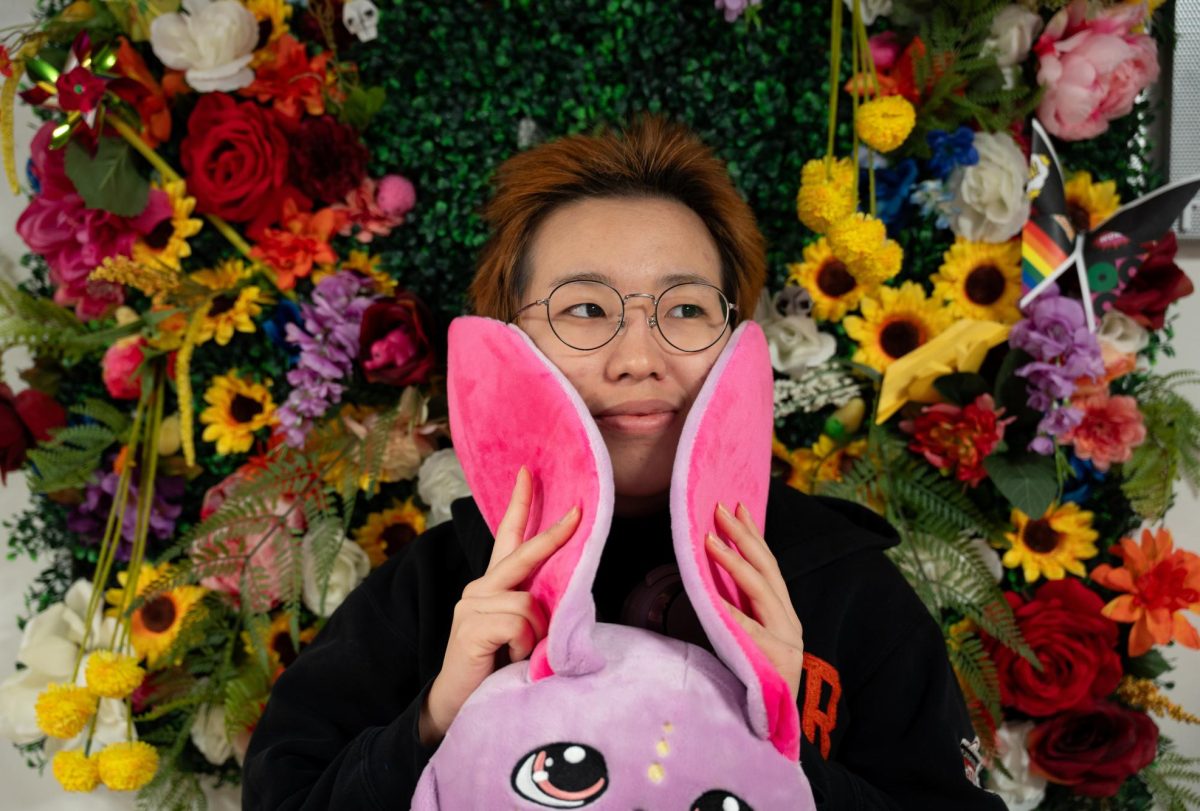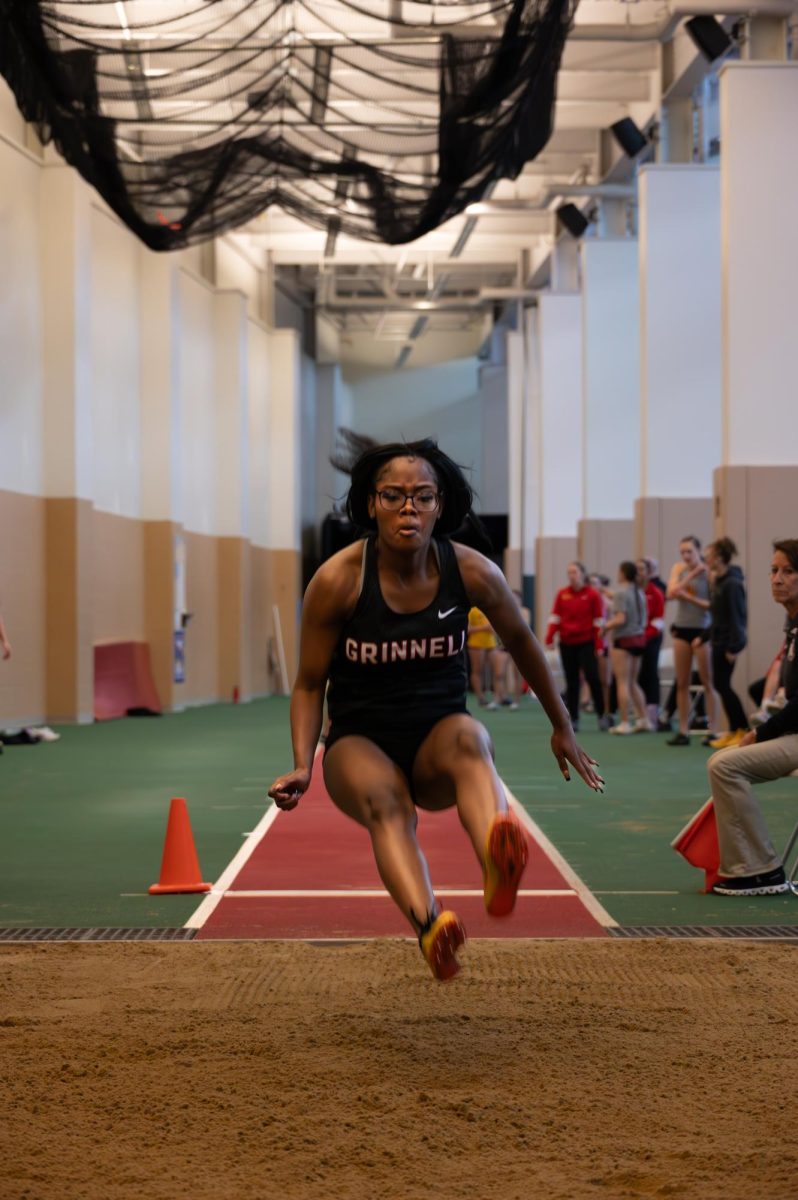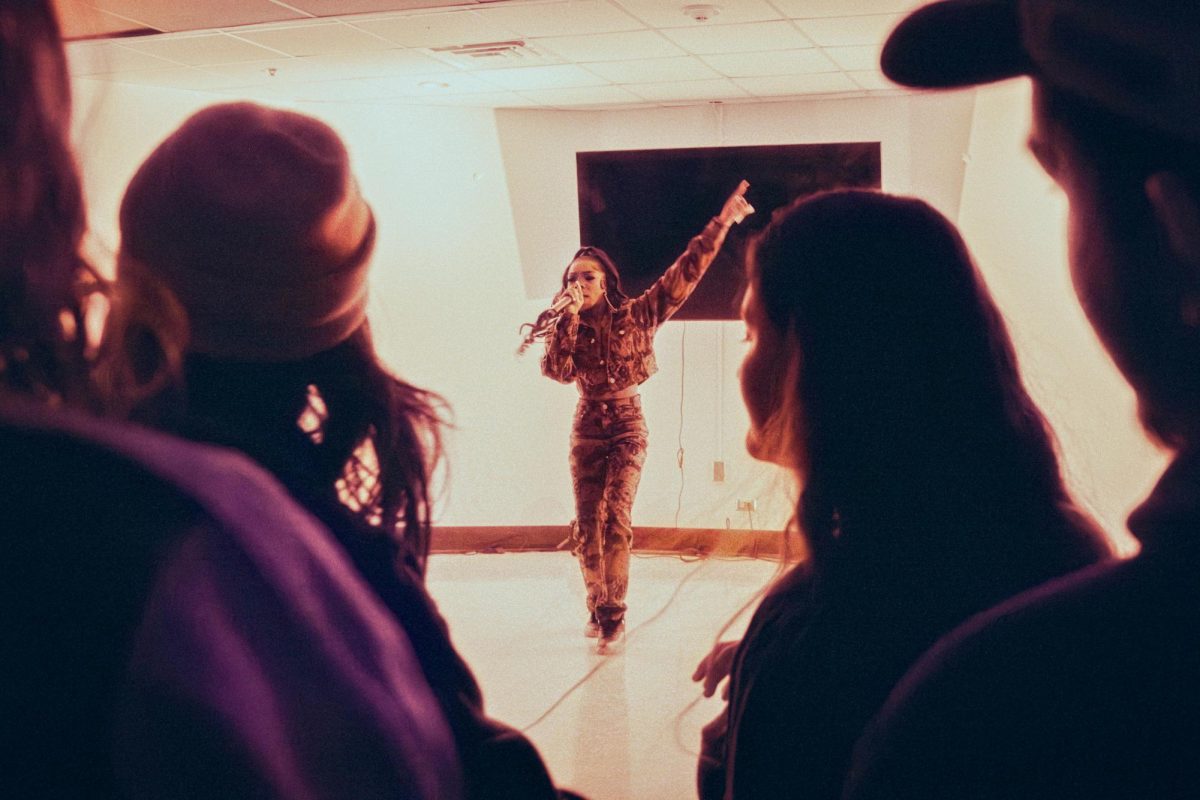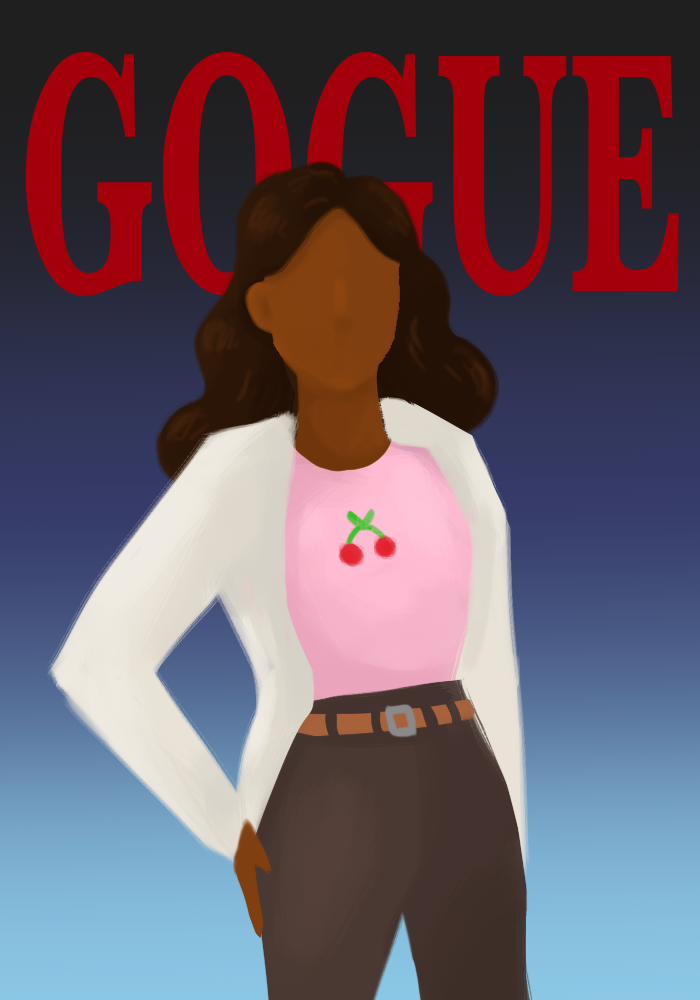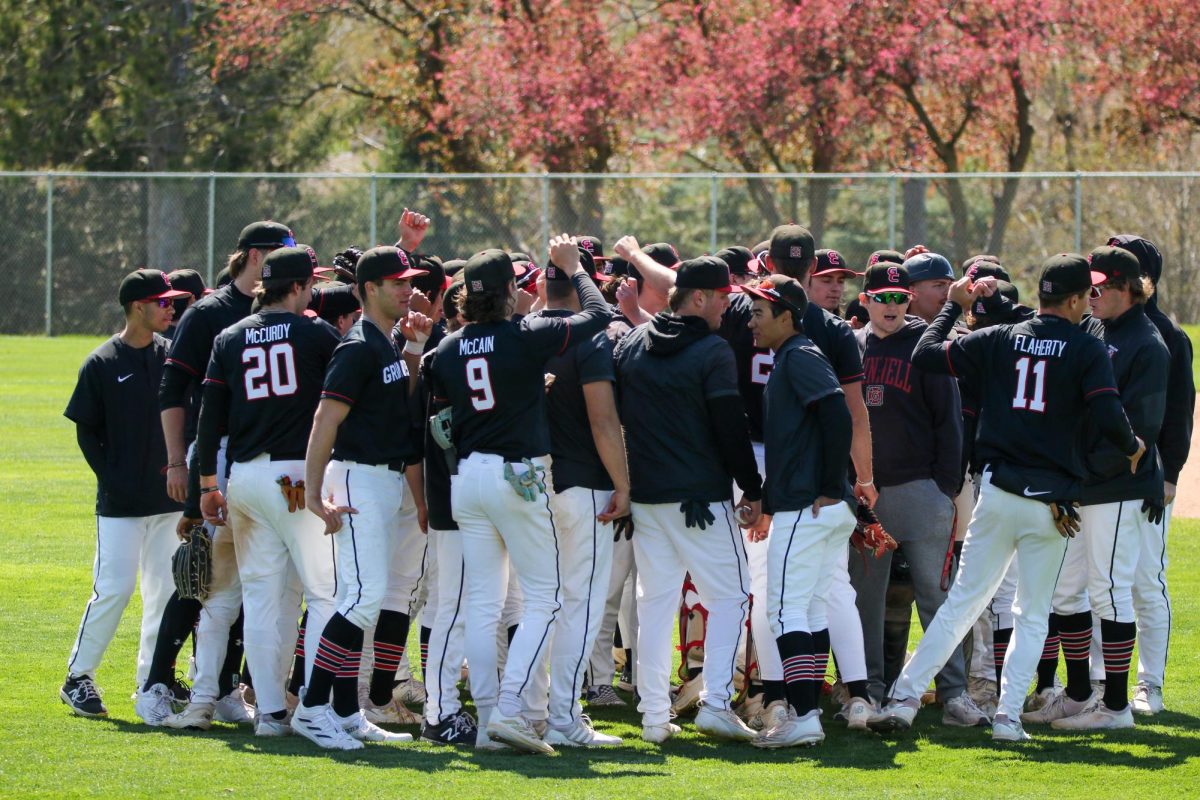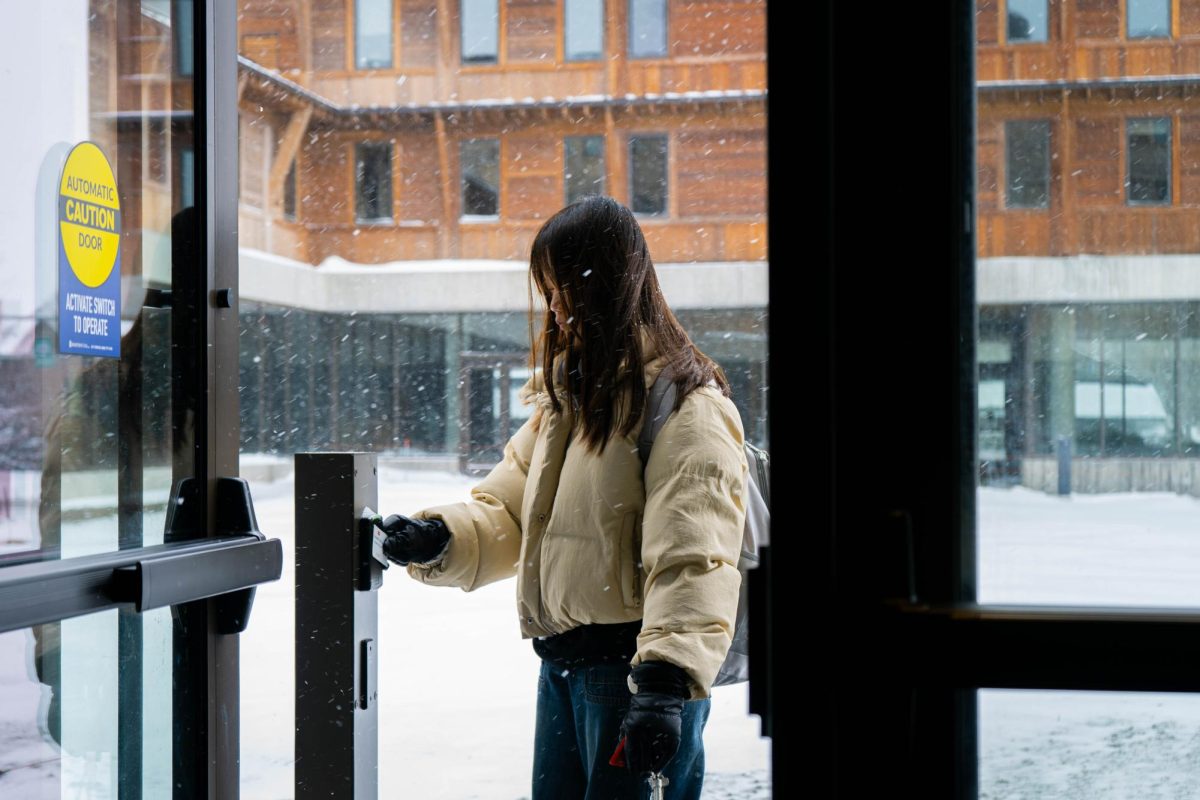“We’re each kind of telling a story. We’re in our own minds thinking, you know, what story? What narrative do we want the world to receive?”
This is the philosophy that Emma Hastie `23 brings to fashion. It shines through in conversation as well as in her own style, today with the bold layering of an embroidered denim dress over a ripped sheer top. Hastie wears this outfit as she explains the origins of GOGUE, the new Grinnell-centric fashion magazine she created and is leading into its first semester.
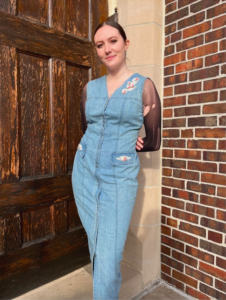
Looking for a new way to get involved at Grinnell, Hastie came up with the idea for a fashion magazine last November. After submitting her idea to Student Publications and Radio Committee, logistics quickly fell into place. Hastie’s budget was approved and she spent the break compiling a rough plan for the magazine, writing job descriptions and hiring five staff members to create the first edition this semester.
Joining Hastie are Krista Spies `24 and Chae Young Yu `24 as writers, Timur Kasimov `25 as photographer, Rumesa Qalbani `25 as graphic designer and Alicia Levine `24 as data analyst and social media manager.
The team will spend the semester compiling a print magazine with the goal of reflecting the Grinnell student body’s relationship with fashion as a form of expression.
Meeting strangers for an S&B interview in a public place like the Grill often results in a few minutes of skeptical eyeing or an awkward exchange of “Are you…?” For these interviews, the GOGUE staff’s outfits made them identifiable immediately. Their styles were by no means similar, though, with self-described aesthetics ranging from “70s” to “cottagecore” to “Pamela Anderson.”
“Clothing can represent your identity. It represents so much of your culture and background, and I feel like we can really exemplify that in the Grinnell community,” said Qalbani. “Even if you’re not interested in fashion, I feel like this is still a really good publication to understand the sociology behind how we interact with our own clothes and how other people see us.”
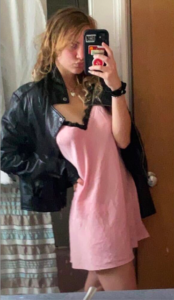
Spies mentioned that fashion has often been an easy way to connect at Grinnell.
“People compliment each other firstly on fashion. I feel like ‘Oh, I like your top’ is more common than ‘Oh, I like what you wrote in that essay,’ if that makes sense. I feel like it’s kind of the first barrier that we cross to be kind to someone, which I really love,” said Spies.
The centerpieces of GOGUE will be photoshoots and interviews with Grinnell students about their own styles. Though the magazine’s main goal will be to feature the student body, the GOGUE team also wants to cover the unique experience of exploring fashion in rural Iowa. One potential story for the inaugural edition will interview Second Mile employees and Grinnell residents about their styles and approaches to thrifting.
“Because the Grinnell community comes from so many different backgrounds, we can express ourselves in so many different ways,” said Qalbani. “Even in such a rural, small community, I can see such a diverse population even just in terms of clothing.”
So what did the fashionable GOGUE staff have to say about Grinnell students’ taste? Overall, reviews were positive.
“Grinnell students can find a way to make it look intentional and cool,” said Qalbani, complimenting our propensity to elevate basics like sweatpants with small but stylish choices.
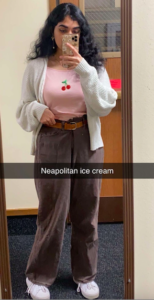
“You see people who go more all out, I guess, those people who usually get complimented more have their own style. But I like seeing, for example, someone who usually wears Grinnell sweatshirts, like they’ll just make a difference one day, maybe a different kind of top that’s more towards their personal style. Those kinds of differences really interest me,” said Spies.
“Of course, on campus, there are stereotypes. There’s the sportos, you know, there’s the STEM kids. Something I would be interested in is seeing how those different groups bridge each other in terms of fashion.”
The past week, GOGUE has begun to advertise to the student body through an intentionally mysterious Instagram account and tabling in the Joe Rosenfield Center. While the exact details are yet to be ironed out, the first edition of GOGUE will likely be distributed a few weeks before the end of the semester. Hastie hopes to host a Met Gala-inspired release party where students can curate their best looks to celebrate the magazine’s first publication.
While GOGUE’s name is clearly inspired by the Anna Wintour-led Condé Nast behemoth, Hastie’s philosophy couldn’t be further from “The Devil Wears Prada.”
“The basis of GOGUE is to celebrate the community, to celebrate the student body,” said Hastie. “It’s to celebrate and create a platform for everybody, and also foster a community where we’re uplifting each other. We need more of that.”
